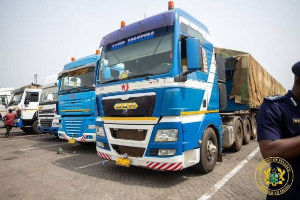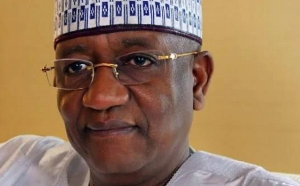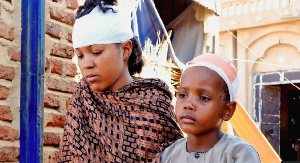In the latest in a series on Africa's web ambitions, BBC News Online's Briony Hale asks whether the internet is delivering on the promise of increased prosperity
Astonishingly, Ghana's capital city of Accra boasts about 500 internet cafes, roughly six times as many as London.
"They're dating, they're being entertained, they're sourcing educational materials," says Mark Davies, founder of Ghana's biggest cyber cafe, when asked how surfers are making use of his 100-terminal facility.
Later, he adds that many are desperately trying to find a way of getting themselves out of Ghana, whilst others are engaged in the notorious, fraudulent activities more usually associated with Nigeria.
And the vast majority of Ghanaians are logging on for the sole purpose of e-mail, using the internet as a much-needed alternative to the expensive and frequently dysfunctional phone system.
Such anecdotal evidence throws serious doubt on the promise that being connected to the world wide web can help alleviate poverty.
False hope?
"There are lots of assumptions that being connected to the internet will in some way create a more equitable life," says Dr Robin Mansell, new media fellow at the London School of Economics."But there is little proof that the people who have internet access are striding ahead of their non-connected peers."
Many experts are starting to agree that the digital divide - when defined as mere access to the internet - has been vastly overstated.
While the home and office connections enjoyed by Westerners is unparalleled, a reasonable proportion of African city-dwellers have some sort of access to the web.
The explosion in the number of internet cafes - admittedly sometimes home to just two or three terminals - in Accra is testimony to that.
But the goal of improved prosperity, greater business opportunities and increased participation in the global economy - promised by UN secretary general Kofi Annan amongst others - is still a rarity.
'Beautiful internet'
 Linda Yaa Ampah, a clothes designer and entrepreneur who last year exported $40,000 worth of stock to Africans living in the US, is an exception to the norm.
Linda Yaa Ampah, a clothes designer and entrepreneur who last year exported $40,000 worth of stock to Africans living in the US, is an exception to the norm. She was advised to get an e-mail address after handing out international mobile phone numbers to American customers at a fashion show in Accra.
"I went to an internet cafe and I couldn't believe it when I realised I could get an address for free," she says, adding that she had little knowledge of computers and presumed e-mail accounts were very expensive.
A few years later, Linda employs an army of 50 tailors to meet her orders and attributes her success to her humble hotmail account.
Americans are wary of long distance telephone calls, she says, but perfectly happy to e-mail their orders. 70% of business is now generated through e-mail from the US.
"The internet is beautiful, easy and clear," she says, "I wouldn't have got nearly so far without it."
Empowering?
In addition to such financial success stories, there are also many intangible benefits of the internet for developing countries.There is the empowerment that comes from being able to research any subject and the increased knowledge of the wider world, helping poor people become what development agencies call "information rich".
But this improved knowledge has also contributed to the exodus of many of Africa's most skilled workers in search of better opportunities abroad, the so-called brain drain that is frequently mentioned in debates about Africa's economic problems.
And the internet has also cemented Africa's image of corruption, the image it is trying so hard to ditch.
Broken promises
At Ghana's biggest internet cafe, BusyInternet, there are signs by every terminal prohibiting the wide array of illegal cash-seeking activities that first emanated from Nigeria.But the cafe's owner admits that, in the early hours of the morning, the fraudsters are almost certainly to be found amongst his customers.
Dr Richard Heeks, a lecturer on Information Systems and Development at the University of Manchester, is amongst those who believe that the problem of the digital divide is over-estimated.
But he is equally adamant that, where the internet has arrived, it is being used for social rather than productive reasons, and doing absolutely nothing to alleviate poverty.
For Ghana's 500-strong internet cafe owners, there is at least a new business opportunity to exploit.
But for the vast majority of people, the internet is failing to deliver on its promise of prosperity.














